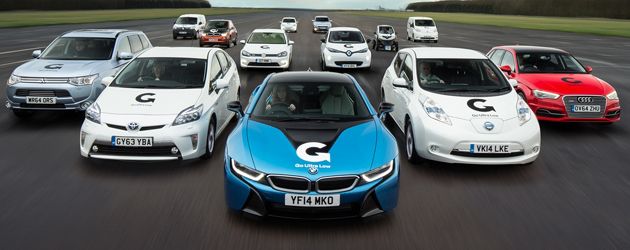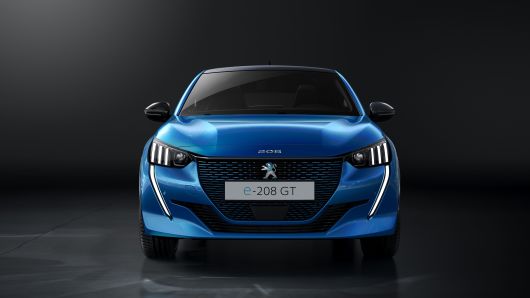Now Reading: Are Electric Cars Safer Than Fuel-Powered Vehicles?
-
01
Are Electric Cars Safer Than Fuel-Powered Vehicles?
Are Electric Cars Safer Than Fuel-Powered Vehicles?

A Quick Look at The Latest Safety Info
In 2013, the electric car company Tesla made headlines for all the wrong reasons. A few months after Tesla released its Model S, mainstream news outlets reported at least three fires involving this sedan. Since that time, there have been many other cases of Model S and Model X cars bursting into flames.
And it’s not just Tesla that has faced criticism for its safety standards. In 2020, GM recalled thousands of its Chevy Bolt models, citing concerns over their battery packs. According to spokespeople at GM, at least two people were injured in a total of fire battery-related fires.
Reports like these often beg the question: are electric vehicles safer than gasoline-based cars? Unfortunately, since EV technology is so new, it isn’t easy to give an accurate answer to this question. However, a few statistics suggest that EVs aren’t as prone to explosions as the media suggests.
For instance, recent data from London’s Fire Brigade found that there were roughly 50 EV fires versus almost 2,000 gasoline vehicle fires in 2019. Even more surprisingly, the number of EV fires in London dropped to 21 in 2020 while there were still over 1,000 fires in gasoline-based vehicles.
More data out of the UK found that there were 23,505 vehicular fires between 2016 – 2017. Since over 37 million of the UK’s registered cars use gas, it’s impossible to say the paltry 110,000 registered EVs were involved in all of these fires.
To counter safety concerns, Tesla pointed to data from the National Fire Protection Association and US Federal Highway Administration on EV-related fires. According to these stats, Tesla’s cars caught fire at a rate of five per billion miles traveled in 2018. By contrast, 55 gasoline-based cars burned over the same mileage.
So, does that mean all of the reported Model S fires are sort-of like reports on shark attacks (i.e., while they could happen, they’re quite rare.)? That could be a part of this issue, but it doesn’t mean EVs are risk-free.
Even the most fervent EV supporters must admit there’s always a risk liquid electrolyte in lithium-ion batteries could combust. Indeed, when these batteries get damaged, short-circuit, or overheat, they could cause a serious chain reaction known as “thermal runaway.”
However, current data suggests it appears “thermal runaway” isn’t as common or severe as gasoline fires. Indeed, some MIT researchers argue EV fires aren’t as dangerous as gasoline fires because battery cells are dispersed throughout the vehicle. This means fires are spread throughout the car rather than being concentrated at the fuel tank.
Another benefit of electric vehicles is that drivers don’t have to “fuel up” with highly combustible gasoline. Electric cars also don’t rely on a “spark” mechanism to ignite the lithium battery.
On the downside, EVs might have an issue in terms of pedestrian safety. Since these vehicles are quieter than traditional gasoline-based cars, it’s more difficult for pedestrians and cyclists to hear them coming. Indeed, a new study from the charity group Guide Dogs found that EVs accounted for 40 percent more pedestrian collisions than standard cars.
According to the NHTSA, one of the biggest issues EV manufacturers have to address is vehicle design. Since electric cars haven’t been around as long as gasoline-based cars, there’s still no standard safety protocol. As more manufacturers develop well-studied safety features (e.g., coolant around batteries and firewalls), EVs should significantly reduce the risk of “thermal runaway.”
So, while it appears EVs could be a safer alternative to fuel-based cars, it will take more time to analyze this issue comprehensively. Hopefully, as more scientists work on technological innovations, EVs will improve road safety for passengers, pedestrians, and the planet.
Stay Informed With the Latest & Most Important News
Previous Post
Next Post
-
 01Polestar Boss Says It’s Time To Outrun BMW M And Mercedes-AMG
01Polestar Boss Says It’s Time To Outrun BMW M And Mercedes-AMG -
 02Spy Shots: 2027 Mitsubishi Pajero Spotted in Testing Ahead of Possible U.S. Return
02Spy Shots: 2027 Mitsubishi Pajero Spotted in Testing Ahead of Possible U.S. Return -
 032026 Toyota Hilux EV: A Powerful Truck with Silent Torque
032026 Toyota Hilux EV: A Powerful Truck with Silent Torque -
 04Spy Photos: VW ID. Polo GTI Goes Electric with 223 HP and 280 Miles of Range
04Spy Photos: VW ID. Polo GTI Goes Electric with 223 HP and 280 Miles of Range -
![2027 Mercedes-Benz S-Class Debuts with V8 Engine [Photo Gallery]](https://speedlux.com/wp-content/uploads/2026/01/2027-Mercedes-Benz-S-Class-33-155x125.jpg) 052027 Mercedes-Benz S-Class Debuts with V8 Engine [Photo Gallery]
052027 Mercedes-Benz S-Class Debuts with V8 Engine [Photo Gallery] -
 06The Controversial Ford Voodoo V8 That Was Killed Off Too Early
06The Controversial Ford Voodoo V8 That Was Killed Off Too Early -
 07Hyundai Palisade’s Breakout Year Shows How Quickly the Market Can Turn
07Hyundai Palisade’s Breakout Year Shows How Quickly the Market Can Turn



![2027 Mercedes-Benz S-Class Debuts with V8 Engine [Photo Gallery]](https://speedlux.com/wp-content/uploads/2026/01/2027-Mercedes-Benz-S-Class-33-700x394.jpg)











































